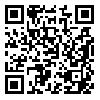Volume 11, Issue 2 (2020)
LRR 2020, 11(2): 205-234 |
Back to browse issues page
1- PhD Candidate in English language teaching, Tarbiat Modares University, Tehran, Iran
2- Associate Professor of English Language Teaching, Tarbiat Modares University, Tehran, Iran. , rgsamar@gmail.com
3- Division of Speech and Hearing Sciences, Faculty of Education, The University of Hong Kong, Pok Fu Lam, Hong Kong
2- Associate Professor of English Language Teaching, Tarbiat Modares University, Tehran, Iran. , rgsamar@gmail.com
3- Division of Speech and Hearing Sciences, Faculty of Education, The University of Hong Kong, Pok Fu Lam, Hong Kong
Abstract: (3263 Views)
One of the central issues in second language acquisition research has been whether grammar should be learned consciously or it can be acquired in meaningful language use. On the one hand, researchers question the possibility of learning without awareness and on the other hand some raise the concern that implicit learning may not lead to spontaneous automatic retrieval of language knowledge. The present study aims to investigate the effect of implicit and explicit instruction on L2 syntactic processing of Persian natives who learn French as a novel language. Thirty-two graduate students with no previous background in French participated in the study. A Timed grammaticality judgement task consisting of 60 syntactically correct and 60 syntactically violated stimuli were presented through Pychtoolbox. The participants pressed the right or left button to judge each sentence. Independent T-test and mixed ANOVA were run to analyze the data. The results showed that the syntactic processing speed is not affected by the training condition as there was no statistically significant difference between the performance of two groups in terms of accuracy of the responses. Separate analyses on the reaction times showed that learners in both groups responded more quickly when judging the grammaticality of correct sentences and the ungrammaticality of syntactically violated sentences which implies that all learners had gained implicit knowledge.
| Rights and permissions | |
 |
This work is licensed under a Creative Commons Attribution-NonCommercial 4.0 International License. |


